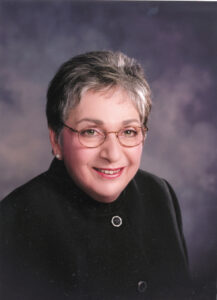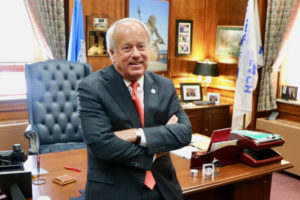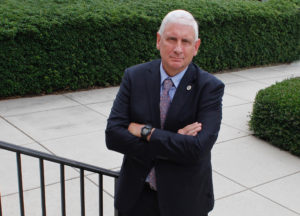Ed. — Archived from the Sunday, July 7, print edition.

Six people, including incumbent Bobby Dyer, are running to be mayor, the largest field since the modern city began electing mayors in 1988. With no runoff system here, the winner may be determined without a majority of Virginia Beach voters backing them.
VIRGINIA BEACH — Six candidates have qualified to run for mayor this year, the largest collection of candidates since Virginia Beach began electing its mayor in 1988.
Mayor Bobby Dyer, a former council member who has won both a special election and general election for the office, is seeking another four years in the job.
He faces Councilmembers Chris Taylor and Sabrina Wooten, former Councilmember John Moss, former state Del. Cheryl Turpin and businessperson R.K. Kowalewitch. The challengers see the field as an opportunity for change, with some suggesting the number of candidates in the mayoral race signals the willingness of voters to make that happen.
Multiple candidates have sometimes, but not always, led to that in Virginia Beach.
The late Meyera Oberndorf, the city’s first elected mayor, was a leader whose legacy still is felt in our history. She won in races with head-to-head matchups and a few candidates, but she also lost a reelection bid in 2008 among four candidates.
Will Sessoms became mayor with 39 percent of the vote in that election, and Oberndorf placed second with 35.4 percent. Moss, who is running again this year, brought in 15.5 percent, and Scott Taylor took 10 percent of the vote.
Oberndorf had won a majority of the vote among multiple candidates in the past, but Moss believes the number of candidates made a difference in 2008.
“Probably, if I hadn’t run, Meyera wouldn’t have lost that election,” he said.
Factors such as turnout, campaign spending, partisan endorsements and national politics within a presidential election year can play a part in the outcome this year.
There is also a reasonable likelihood the next mayor will win a plurality, not a majority, of support among voters.
City Council and School Board races in the city are nonpartisan, meaning, among other things, there is not a party nomination system which can whittle down a field.
Additionally, there is no runoff or ranked-choice voting system in use here.
“The highest vote gets it,” Dyer said.
That means Virginia Beach may wind up with a mayor many residents didn’t choose, which is not to say that is uncommon when there are more than two candidates.
Dyer recalled there were nine candidates who ran for office during his first campaign for an at-large seat. He didn’t win that election, he noted, but it has not been uncommon to have several candidates in at-large races for local office, with top vote getters earning available seats.
There have been a number of changes to how citizens elect their representatives over the years, he said – such as moving elections from May to November, which meant higher turnout, and, now, the 10-district system for local offices. But mayors are still selected by all city voters.
More than four people haven’t run for mayor in the past here. What will so many candidates mean this year?
“It really depends,” Dyer said. “My hope is the incumbent is in favor there, especially if they do a good job. …
“This is the system that we have, traditionally, but ultimately the voters will make the decision,” the incumbent said. “And it will be a presidential election, so it will be a high turnout election and, I think, be representative.”
Since the change to district voting in 2022, the mayor – and one corresponding at-large seat on the School Board – are opportunities for all city voters to weigh in on the same office. Both those seats are on this year’s ballot.
To date, Dyer has won both of his mayoral elections with a majority – a special election in 2018 against one candidate and a general election in 2020 against two.
Kowalewitch earned 4.4 percent of the vote to place third in 2020, but he received bigger chunks of the vote in 2012 and 2016 – nearly 19 percent among three candidates and 19.4 percent among four – while challenging Sessoms.
However, Sessoms won majorities, or more than 50 percent, both times.
Now running for mayor for the fourth time, Kowalewitch in an interview said the overall number of candidates helps him.
“It really levels the playing field,” said Kowalewitch, who has sued the city over a district voting system first used in 2022 and long been a critic of city leadership.
“When Cheryl Turpin got in the race,” he added, speaking of the former delegate who became the fifth candidate to announce this year, “that’s when I knew I was running because the pie’s going to be cut up. … I think it’s a race I feel I can win, and I think everybody running feels that way.”
Moss said the number of candidates in the 2024 race is no surprise – and met his expectations.
“The public can’t say they don’t have a choice,” Moss said.
Moss said each candidate running this year likely has some support that cannot be siphoned off by others who are running.
“I think it’s a race that anyone could win with 25 percent of the vote,” Moss said. “And that’s not a good thing. I believe we need a runoff system.”
There are four people in the race identified as Republicans, three of whom were in the race at the time that the city GOP decided to endorse Dyer, and two candidates who are Democrats.
Chris Taylor said that, while his name was among those considered by the city GOP, he didn’t seek that endorsement – and he doesn’t see it as a big factor in the race to be mayor.
“With the system we do have, anybody can run,” Taylor said. “I think it does say something about the fact there are two sitting members [of the council] and a recent member running against the sitting mayor.”
The number of candidates hasn’t been a driving factor for him, though.
“Me personally, I wouldn’t give up my seat if I didn’t think my district and a broader group of citizens are happy with the job I’m doing,” Taylor said.
Speaking of the field, he added, “These individuals feel they have the support and a real shot of unseating the incumbent.”
Recently, Wooten won the endorsement of the city Democratic committee over Turpin during a caucus vote.
The mayoral race is nonpartisan, and party identifiers do not appear on ballots, but those distinctions are on literature outside polling locations and can make a difference.
As for the overall number of candidates, it didn’t phase Turpin.
“I think it’s a great thing,” she said. “I say that because it’s an opportunity for people to really vote for change.”
Turpin said heard discussions about runoffs and ranked-choice voting while serving in the General Assembly, and she can see the validity of it in situations with multiple candidates – though she added that it would need a lot of consideration.
She reiterated that the field suggests people are open to a different direction in Virginia Beach.
Wooten agreed.
“For the most populous city in Virginia to see so many people in the race — and see so many people trying to make change in Virginia Beach — it’s incredible,” Wooten said. “It speaks to the need of the community. The community is looking for change.”
Wooten said she hoped securing the Democratic endorsement will help galvanize support.
“I believe the endorsement is important because people do want to come together in unity behind one candidate,” Wooten said.
PAST VIRGINIA BEACH MAYORAL ELECTIONS

- Meyera Oberndorf 76.8%
- Louis Pace 15.5%
- Henry McCoy Jr. 7.7%
1992
- Meyera Oberndorf 45.2%
- Reba McClanan 32.6%
- Mark Bailey 22.2%
1996
- Meyera Oberndorf 81.5%
- Bob Yurina 18.4%
2000
- Meyera Oberndorf 45.8%
- Glenn Corey Corillo 42.3%
- Miguel Arsuaga 8.5%
- Dick Jones 3.2%
2004
- Meyera Oberndorf 50.8%
- Robert Dean 43.1%
- A.A. Wallace III 6.1%

- Will Sessoms 39%
- Meyera Oberndorf 35.4%
- John Moss 15.5%
- Scott Taylor 10%
2012
- Will Sessoms 69%
- R.K. Kowalewitch 18.9%
- Walter Erb 11.5%
2016
- Will Sessoms 54.1%
- R.K. Kowalewitch 19.4%
- Don Weeks 18.4%
- George Furman 7.6%

- Bobby Dyer 51.8%
- Ben Davenport 47.7%
2020
- Bobby Dyer 51.6%
- Jody Wagner 43.9%
- R.K. Kowalewitch 4.4%
Source: State and local returns
© 2024 Pungo Publishing Co., LLC

